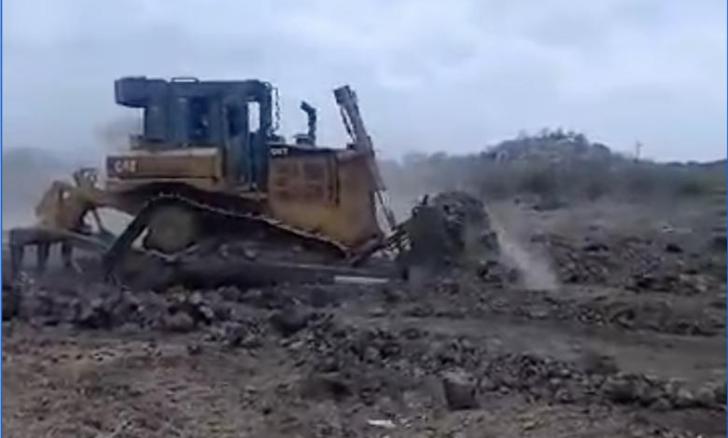News / National
Insiza South Villagers unite to desilt local dams
22 Nov 2024 at 15:17hrs |
0 Views

Villagers in Insiza South district have successfully pooled resources to desilt three dams, ensuring improved water availability for their communities. The collaborative effort targeted Msengezane Dam in Mabuze Village (Ward 5), Makoshe Dam in Mbaulo Village (Ward 7), and Ndlegu Dam in Singwambidzi, which had been clogged with mud over the years.
Led by project spokesperson Ezweni Moyo, the community raised $911 through household contributions of $3 each. The initiative received a significant boost from diaspora members, who donated 37,000 rands. These combined efforts ensured that the three dams were desilted efficiently.
"There were additional donations that came in during the project," Moyo said, highlighting the broad-based support for the initiative.
To execute the project, villagers hired machinery from local resident David K. of West Nicholson at a rate of $140 per hour. In a show of goodwill, David contributed an additional three hours of work for each dam at no cost, reducing the financial burden on the community.
"We budgeted for seven hours per dam, but David generously added three more hours, so we only had to buy fuel," Moyo explained. Each dam ultimately received 10 hours of excavation.
The desilted dams will provide much-needed water for domestic animals, brick moulding, and fishing, significantly benefiting the local population.
Despite initial skepticism from some villagers, the project gained widespread support once the community realized the long-term benefits of increased water retention capacity.
However, the effort was not without challenges. Poor network connectivity complicated coordination, forcing organizers to cover the costs of in-person meetings out of their own pockets.
Moyo emphasized the importance of ongoing maintenance to prevent future siltation.
"Don't wait for the dams to dry out," he urged, encouraging regular upkeep to sustain the project's gains.
The success of this grassroots initiative underscores the power of community-driven efforts in addressing local development challenges.
Led by project spokesperson Ezweni Moyo, the community raised $911 through household contributions of $3 each. The initiative received a significant boost from diaspora members, who donated 37,000 rands. These combined efforts ensured that the three dams were desilted efficiently.
"There were additional donations that came in during the project," Moyo said, highlighting the broad-based support for the initiative.
To execute the project, villagers hired machinery from local resident David K. of West Nicholson at a rate of $140 per hour. In a show of goodwill, David contributed an additional three hours of work for each dam at no cost, reducing the financial burden on the community.
"We budgeted for seven hours per dam, but David generously added three more hours, so we only had to buy fuel," Moyo explained. Each dam ultimately received 10 hours of excavation.
The desilted dams will provide much-needed water for domestic animals, brick moulding, and fishing, significantly benefiting the local population.
Despite initial skepticism from some villagers, the project gained widespread support once the community realized the long-term benefits of increased water retention capacity.
However, the effort was not without challenges. Poor network connectivity complicated coordination, forcing organizers to cover the costs of in-person meetings out of their own pockets.
Moyo emphasized the importance of ongoing maintenance to prevent future siltation.
"Don't wait for the dams to dry out," he urged, encouraging regular upkeep to sustain the project's gains.
The success of this grassroots initiative underscores the power of community-driven efforts in addressing local development challenges.
Source - cite
Join the discussion
Loading comments…





























